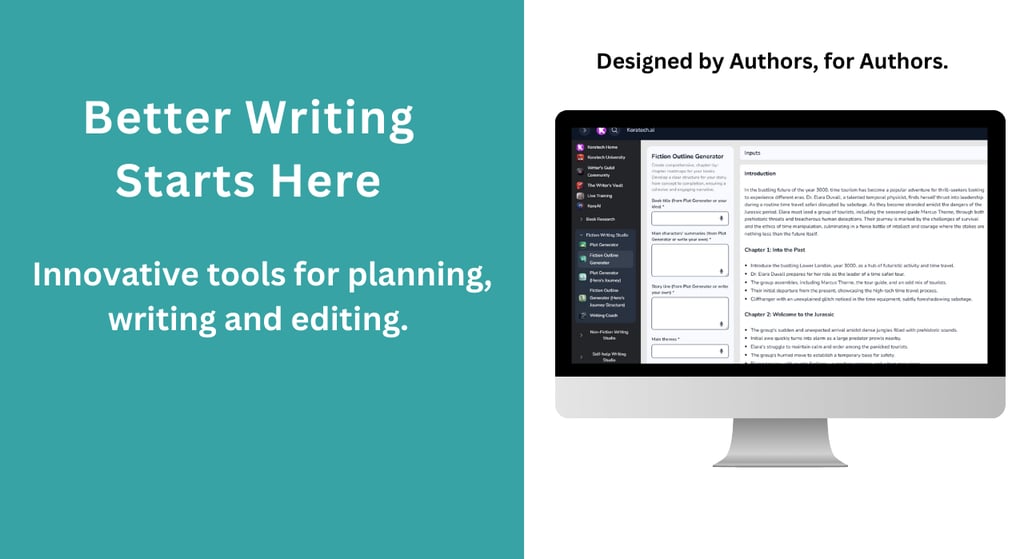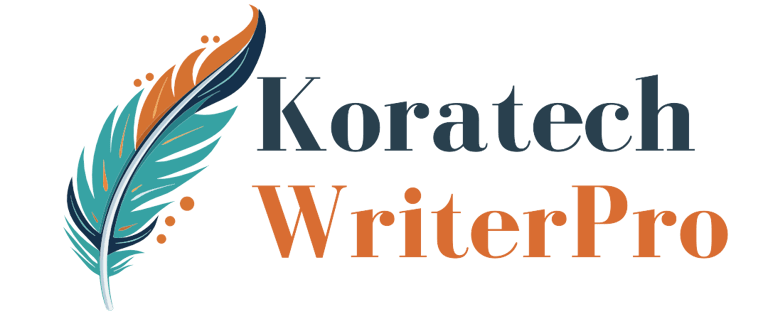7 Revenue Streams Every Author Should Consider in 2025 (And How to Tie Them Into a Thriving Business)
Discover seven powerful revenue streams every author should consider in 2025, from direct sales and subscriptions to licensing and digital products. Learn how to connect these income sources into a sustainable author business, and explore how Koratech WriterPro, powered by the Knowledge Hub, can help you build the systems to make it happen.
BOOK PROMOTION & MARKETING


7 Revenue Streams Every Author Should Consider in 2025 (And How to Tie Them Into a Thriving Business)
In 2025, being an author isn’t just about finishing a manuscript or uploading to Amazon.
It’s about building a career, a platform, and a sustainable business around your writing.
While book royalties are great, they’re rarely enough on their own. The authors thriving today are the ones tapping into multiple revenue streams that support both their creativity and their income goals.
Here are seven of the most promising revenue streams for authors this year. They’re creative, scalable, and designed to help you grow beyond the bookshelf.
1. Direct Book Sales
Selling through Amazon or another major retailer is easy, but you give up control. You don’t own the customer relationship, you can’t upsell or bundle, and the platform takes a significant cut.
Many authors in 2025 are choosing to sell their books directly through their own websites. With simple sales funnels, you can offer limited editions, signed bundles, or digital packages that include your ebook, audiobook, and bonus material.
This approach gives you the full profit margin, direct access to your readers, and more flexibility in how you market and deliver your work.
2. Teaching and Courses
If you’ve written a book, you’ve already done something most people only dream about. That experience has value. Whether you want to teach new writers, share your process, or create a course for readers on a related subject, online learning is a rapidly growing market.
Courses can be short and low-cost or comprehensive and premium. Some authors host live workshops, while others package lessons into on-demand videos and downloads. Teaching can supplement your book income or become your main business model.
3. Subscription Communities
Readers don’t just want books. They want connection.
Private communities and reader clubs let fans engage with you and each other. These spaces can include behind-the-scenes updates, serialized content, Q&As, early chapters, and special bonuses.
Popular platforms include Patreon, Substack, and Discord, but some authors host memberships on their own websites. Whether you charge a few dollars a month or build a premium tiered system, community subscriptions offer reliable, recurring income.
4. Merch and Printables
Books aren’t the only thing your audience will buy.
Merchandise, printables, and collectibles offer fans new ways to support your work. T-shirts, mugs, maps, artwork, or quote prints can all tie into your brand. You can also create printable planners, workbooks, or activity packs tied to your story or genre.
Many of these products can be sold using print-on-demand or digital delivery, so you don’t need inventory or up-front costs.
5. Freelance and Ghostwriting Services
Sometimes the fastest way to earn from your writing skills is to help others with theirs.
Authors often offer freelance services like ghostwriting, editing, book coaching, or developmental feedback. These services can provide reliable income between launches or during longer creative projects.
You can work with businesses, publishers, or aspiring writers. Having a “Work With Me” page on your website helps attract and convert these opportunities.
6. Licensing and Rights Sales
Licensing isn’t just for bestseller deals and movie rights.
Authors today are licensing their work for translation, curriculum, audio, comics, and even AI-based platforms. If your stories have clear characters, strong visuals, and adaptable content, you’re already creating intellectual property that can be licensed in new ways.
You can also create assets intentionally for licensing: companion short stories, branded character art, or worldbuilding documentation that publishers, developers, or educators can use.
7. Author-Owned Platforms and Digital Products
This is the future-facing model.
Some authors are now creating software, platforms, or digital tools that solve a problem for a specific audience. These might include planners, prompt generators, subscription libraries, or writing tools. Others build communities or resource libraries that charge access fees.
You don’t have to know how to code. With the rise of no-code tools and smart frameworks, many authors are turning their unique ideas into products.
These author-run platforms create passive income, brand authority, and new business opportunities outside of traditional publishing.
Bringing It All Together
It’s one thing to have multiple revenue streams. It’s another to connect them into a business that actually works.
That’s where most authors get stuck. They have the ideas, the skills, and the content, but no clear way to tie it all together.
At Koratech WriterPro, we believe your author business should be as strong as your storytelling. That’s why the platform is powered by the Knowledge Hub — a training ecosystem that shows you how to turn your ideas into a real business.
Inside the Knowledge Hub, you’ll learn how to:
Build a membership for your readers or writing students
Create and sell digital products like courses or resource kits
Design a branded platform, writing system, or niche tool
Launch your own SaaS-powered writing business, just like we did
WriterPro is more than a writing tool. It’s a live example of what’s possible when an author builds a brand that supports and expands their creative work.
If you're ready to grow beyond the page, the Knowledge Hub is where to start.
Explore the Knowledge Hub today and discover how to turn your writing into a complete business.


